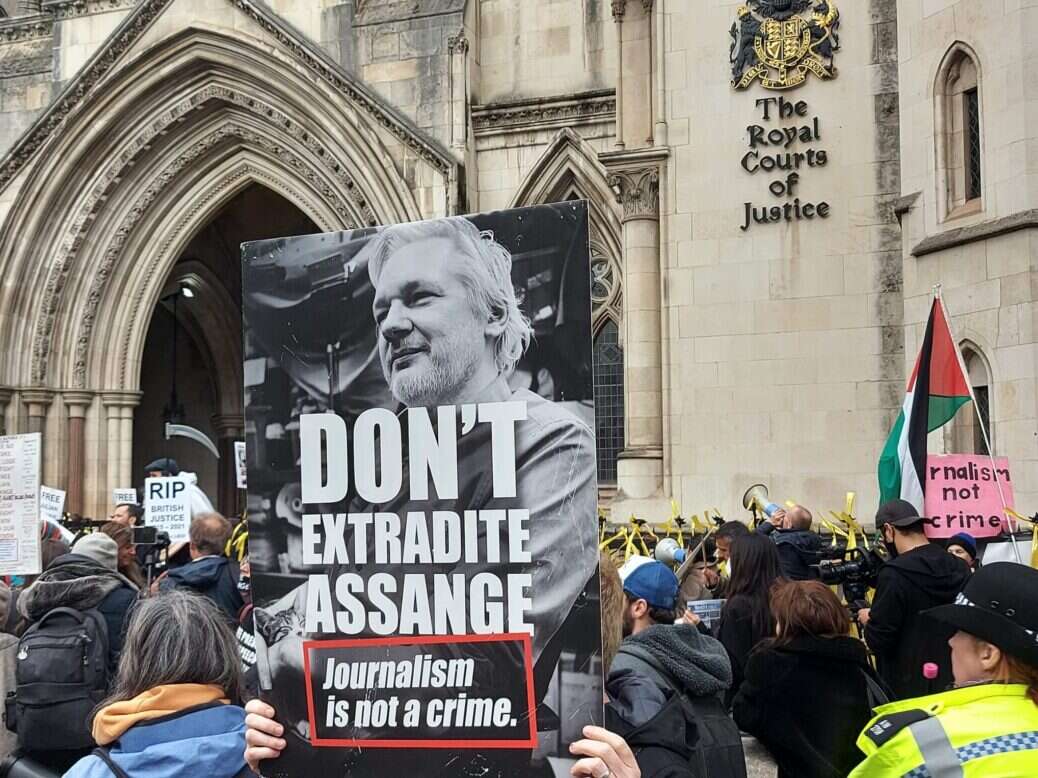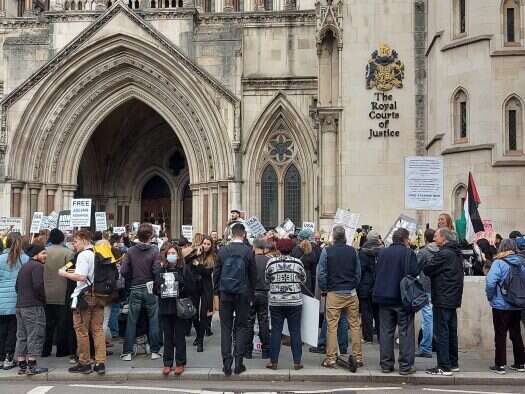
The judge who refused to extradite Julian Assange risked “rewarding fugitives for their flight” with her approach to his mental health, the High Court has heard.
Assange, 50, is wanted in America on allegations of a conspiracy to obtain and disclose national defence information following WikiLeaks’ publication of hundreds of thousands of leaked documents relating to the Afghanistan and Iraq wars.
After a multi-week extradition hearing, then-District Judge Vanessa Baraitser ruled in January that Assange should not be sent to the US, citing a real risk of suicide.
She found that “the procedures described by the US will not prevent Assange from finding a way to commit suicide”, ruling that extradition would be oppressive.
On Wednesday, the US authorities began their attempt to overturn the district judge’s decision at the High Court.
After initially indicating he would not attend Wednesday’s hearing, Assange observed via videolink from Belmarsh Prison in south-east London, appearing to wear a black face covering and a burgundy tie.

Protest in support of Julian Assange outside the Royal Courts of Justice in London on 27 October 2021. Picture: Dominic Ponsford/Press Gazette
James Lewis QC, for the US, told the court that the district judge “entirely based her decision” on the risk Assange would be submitted to special administrative measures and detained at the ADX Florence Supermax jail, if extradited.
However, Lewis said four diplomatic assurances had been made, including that it would consent to him being transferred to Australia to serve any prison sentence he may be given, which “fundamentally change the factual basis” of her judgment.
In written submissions, Lewis said the district judge also based her decision on Assange’s “intellectual ability to circumvent suicide preventative measures”, which risked implementing an impossible threshold for states seeking extradition.
“Regardless of any resource available in the requesting state, extradition could be precluded where an individual can be said to have the intellectual ability to circumvent the state’s preventative measures,” he said.
Lewis continued: “The district judge’s approach carries with it the risk of rewarding fugitives for their flight, and of creating an anomaly between the approach of the courts in domestic criminal proceedings, and in extradition.
“In the domestic context, it would never be said that an individual accused of crimes of the severity of Mr Assange’s could not be put on trial, despite being fit to be tried, because of his determination to commit suicide.”
Lewis also argued that the law does not allow for extradition to be blocked based on a “predictive” approach to someone’s mental health.
“Its purpose is not to prevent the extradition of individuals whose current health does not preclude extradition. The alternative crystal ball construction should not find favour,” he added.
A crowd of Assange supporters, including his partner Stella Moris, gathered outside the Royal Courts of Justice in central London ahead of the hearing, chanting and playing loud music.
— Press Gazette (@pressgazette) October 27, 2021
Moris, who was later seen in the public gallery of the court, told reporters ahead of the hearing: “I hope the courts will end this nightmare, that Julian is able to come home soon and that wise heads prevail.”
Edward Fitzgerald QC, for Assange, told the court in written arguments that the US authorities had “sought to minimise the severity of Mr Assange’s mental disorder and suicide risk”.
He continued: “It is perfectly reasonable to find it oppressive to extradite a mentally disordered person because his extradition is likely to result in his death.”
Fitzgerald said that the district judge relied on the “inevitable fact” Assange would be detained in isolation and deprived of protective factors he experiences in Belmarsh if extradited and that the US’s assurances did not remove the risk of detention in special administrative measures.
He added that while the US has said it will consent to a transfer to Australia if Assange is convicted, Australia has not indicated whether it would accept him, and the transfer “likely won’t occur”.
Assange has been held in Belmarsh Prison since 2019 after he was carried out of the Ecuadorian embassy in London by police before being arrested for breaching his bail conditions.
He had entered the building in 2012 to avoid extradition to Sweden to face sex offence allegations, which he has always denied and were eventually dropped.
The hearing before the Lord Chief Justice Lord Burnett and Lord Justice Holroyde is expected to end on Thursday with a decision at a later date.
Picture: Dominic Ponsford/Press Gazette
Email pged@pressgazette.co.uk to point out mistakes, provide story tips or send in a letter for publication on our "Letters Page" blog
